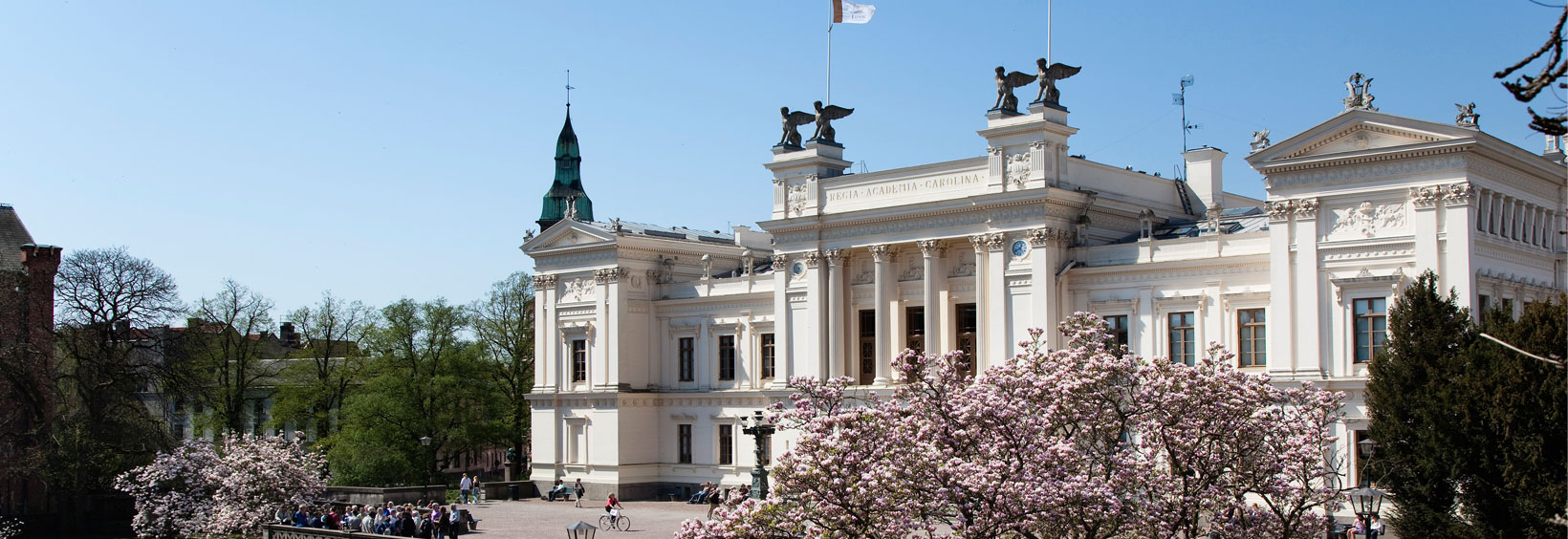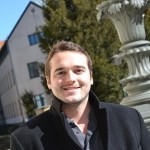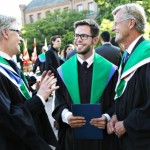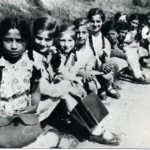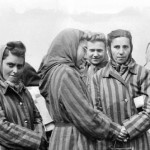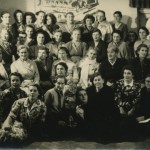Author Archives: oscar
Scholarships – Give Education.
Lund University Foundation wants to offer American students a full-year Scholarships to study at Lund University – each scholarship worth $20,000. Please help us realize this goal by donating $75 = one day of education at Lund University.
Do you remember your first week at Lund University? Students biking everywhere, historic buildings, cool class schedule with unique topics, engaging professors, and just this super-special “Lundagard” feeling. Give that experience to someone! There is an American scholarship candidate waiting to get on the plane to Lund University and get a fresh start full of new opportunities.
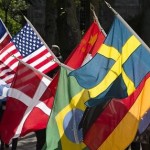
Change a young person’s life.
Our scholarship program recognizes high achieving students from across the globe. Scholarship recipients have a proven record of high grades in their previous studies and are carefully assessed by our committee. Help us educate future leaders. “Knowledge is power. Information is liberating. Education is the premise of progress, in every society, in every family.” Kofi Annan – Honorary Doctorate, Lund University
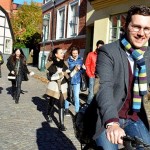
Let’s Send Students to Lund University!:
Every donation big or small enables students to walk into Lund University’s ivy-clad doors with potential and walk out with endless possibilities. Help us reach our 2018 goal!
$75 pays for one day of tuition at Lund University
Each day of education changes the entire course of a young ambitious person’s life!
Please mail a check payable to “Lund University Foundation”
5161 Overland Avenue, Culver City, CA 90230
You may specify your cause “Scholarships” on the front of check or in a separate note.
Make a donation to Lund University Foundation by clicking on the DONATE button:
Your payment will be processed securely through PayPal.
Jacob Braun, born and raised in Alaska, received a one year Entrepreneurship Masters Program Scholarship at Lund University. “This opportunity changed my life. I found that Lund University offers the best combination of a great academic tradition, culture and history with modern and innovative ways of thinking and up-to-date research & development resources. As part of this program, I will receive the education I need to realize my business idea. When I graduate I’ll move back to the US, start my own company and work to commercialize the business plan!”
Steven Curtis, U.S. winner of Lund’s scholarship competition, received an Environmental Management and Policy Master Program scholarship. “These two years have been the most transformative and memorable of my life! I am grateful for the opportunity to study in Sweden with the help of Lund University. The scholarship allowed me to pursue my passion for people and the planet!”
Ravensbrück Archive – The Polish Research Institute
The Polish Research Institute Archive is a unique collection of source material from the survivors of Ravensbrück and other Nazi concentration camps. With the help of your generous donations we have made parts of the archive available online. The interviews, transport lists, lists of arrivers to Sweden, photographs, drawings, poetry notebooks, personal notebooks, teaching materials, work journals, and Helena Dziedzicka´s notes from the trials have all been digitized in their entirety. We thank our donors for your very generous support.
Towards the end of World War II, approximately 20,000 Nazi concentration camp survivors were evacuated to Sweden. The rescue operations were organized by the Red Cross and United Nations Relief and Rehabilitation Administration. With the intent of documenting the war crimes and the experiences of the victims, a working group called “The Polish Research Institute in Lund” was founded to conduct in-depth interviews with the former prisoners and collect material that the survivors had brought with them from the camps.
The initiator of the documentation project was Zygmunt Lakocinski (1905-1987), lecturer in Polish at Lund University, who worked as an interpreter at the arrival of the survivors. The material was intended to be used as evidence in future trials and as source material for historical research. Financed by the Swedish government, Lakocinski assembled a team of co-workers – themselves former prisoners of concentration camps – who in 1945 and 1946 conducted more than 500 interviews.
A majority of the interviewees were Catholic women who had been imprisoned at the Ravensbrück concentration camp, a camp for women and children located 90 km north of Berlin. Many survivors had been transferred from camp to camp during the war, and the interviews also detail events and experiences from a number of other concentration camps, including Auschwitz, Bergen-Belsen, Dachau, Majdanek, Neuengamme and Sachsenhausen. Exactly how the interviewees were chosen is not fully known, but more than half of the interviewees were under 35 years of age, 71% were women, 85% were Roman Catholics, 12% Jewish and 3% of other or unknown religious affiliation.
The historian Sture Bolin aided the Polish Research Institute in developing a method that ensured that the interviews would be reliable as source material. In practice, this meant that the interviews should take place as soon as possible after the liberation, and that the testimonies should be a combination of outlines and verbatim witness accounts, which could then be substantiated by other witnesses. It was also deemed important that the collection of information was as objective and impartial as possible, and that the interviewer distinguished between facts and the interviewee’s emotions. To achieve this, it was essential to note names, places and expressions mentioned by the interviewee and to stick to the framework of chronology. To keep the interviews structured, they were conducted by using a set of general questions which allowed the interviewees to recount their personal experiences in an ordered way. After the interview, a transcript of the witness testimony was signed by both the interviewee and the interviewer.
Though personal belongings were forbidden in the concentration camps, many survivors had managed to keep small objects hidden and bring them with them to Sweden. Among the personal belongings donated to the working group were letters, photographs, personal notebooks, drawings, food recipes, prayer books, teaching materials, as well as work journals used at camps (so-called Blockbücher). In addition to this material, which is now part of the archive, the working group also collected a large number of physical artefacts, such as crucifixes, dolls and pieces of cloth, that are now kept at Kulturen in Lund.
The Polish Research Institute also compiled information that could be used as reference resources. These included lists of concentration camps, SS personnel, Nazi prisons, persons deceased and executed in the camps, vocabularies listing terms used at the camps, as well as Swedish refugee camps and hospitals where the survivors were placed. The institute also copied transport lists (probably to and from the Ravensbrück concentration camp) and the Red Cross’ and UNRRA’s lists of Polish citizens who were evacuated to Sweden. The archive also contains personal notes by Helena Dziedzicka, a former prisoner at Ravensbrück and member of the working group, taken when she testified at the so-called Hamburg Ravensbrück trials in 1946-1947.
For a complete overview of the archive please see this Lund University Library page. The witness testimonies, all written in Polish, are in the process of being translated into English, and new translations are added continually.
For questions please email Robert Resnick at robert.resnick@lunduniversityfoundation.org
”Ravensbruck Concentration Camp was built to house primarily women and children. Anything that can be done to document the atrocities that occurred there must be done! We thank the people of Sweden for their unyielding support of Jewish and other Ravensbruck refugees after WWII.”
U.S. Congressman Henry Waxman, Congressional Liaison to the United States Holocaust Memorial Museum
”We must never forget the sad and unimaginable lessons of the Holocaust. Once translated, Lund University’s Ravensbrück Archive will allow us to educate generations to come.”
Rabbi Steven Carr Reuben, Kehillat Israel
Former President of the Board of Rabbis of Southern California
”Holocaust evidence is becoming increasingly fragile and scarce. The Ravensbrück Archive is a revelation that will help to teach history and prevent it from repeating itself.”
Holli Levitsky, Founder and Director of the Jewish Studies Program
Professor of Holocaust Studies at Loyola Marymount University
”This Ravensbrück Archive is a lost treasure. Its translation and preservation offers an opportunity to reclaim an important slice of history and worthy of exhibition at the L.A. Museum of The Holocaust.”
E. Randol Schoenberg, President, L.A. Museum of the Holocaust
Two articles by the Jewish Journal:
Article 1: Swedish University to archive Ravensbrück survivors’ stories
Article 2: Memories of Ravensbrück
Ravensbruck Archive Project Receive Endorsements
Prominent community leaders like Rabbi Steven Carr Reuben, Prof. Holli Levitsky, Museum Director Randol Schoenberg, Congressman Henry Waxman endorse and stress the importance of translating and digitizing the Lund University Ravensbruck Archive.
Click here for a printable pdf brochure about the Ravensbruck project.
”Ravensbruck Concentration Camp was built to house primarily women and children. Anything that can be done to document the atrocities that occurred there must be done! We thank the people of Sweden for their unyielding support of Jewish and other Ravensbruck refugees after WWII.”
U.S. Congressman Henry Waxman
Congressional Liaison to the United States Holocaust Memorial Museum
”We must never forget the sad and unimaginable lessons of the Holocaust. Once translated, Lund University’s Ravensbrück Archive will allow us to educate generations to come.”
Rabbi Steven Carr Reuben
Kehillat Israel
Former President of the Board of Rabbis of Southern California
”Holocaust evidence is becoming increasingly fragile and scarce. The Ravensbrück Archive is a revelation that will help to teach history and prevent it from repeating itself.”
Holli Levitsky
Founder and Director of the Jewish Studies Program
Professor of Holocaust Studies at Loyola Marymount University
”This Ravensbrück Archive is a lost treasure. Its translation and preservation offers an opportunity to reclaim an important slice of history and worthy of exhibition at the L.A. Museum of The Holocaust.”
E. Randol Schoenberg
President, L.A. Museum of the Holocaust
For further information contact Robert Resnick <robert.resnick@lunduniversityfoundation.org>
Ravensbrück Archive – Witnesses of the Holocaust
The foundation have launched the Ravensbrück Archive Project as one of its fundraising initiatives. The archive material is unique as it consists mainly of systematic interviews with holocaust survivors shortly after they arrived on the white buses to Sweden.
Ravensbrück, situated approximately 90 km north of Berlin, was a concentration camp primarily for women and children. Between 1939, when the first women were transferred to the camp, and 1945, over 130,000 prisoners passed through Ravensbrück and its satellite camps. Many died. For posterity, details of life and suffering in the camps have been kept in Lund University’s Ravensbrück Archive. The Archive includes more than 500 handwritten interviews with survivors, systematically conducted, just after they arrived in Sweden on the white buses.
In addition to interviews, the Archive, which is mainly in Polish, consists of other types of documents such as prisoners’ notebooks, diaries, letters, poems, recipes, photographs, drawings, and official Nazi documents from the concentration camp such as lists of prisoners, block books (maps of the camps with lists and registers of the names of those who lived and died in the various buildings), and transcripts of protocols and original documents from the Ravensbrück trial in Hamburg in 1946–47.
Every week the Lund University library gets inquires about the archive from around the world. We need your help in order to make the Ravensbrück Archive accessible to everyone. Lund University seeks to catalogue, digitize and translate the material and make it available electronically for the world to have access to.
We appreciate any donation, regardless of amount, which will help us to preserve, digitize and make accessible this important piece of history for generations to come. Please help us preserve the Ravensbrück Archive and the memories of those who suffered and perished in the Holocaust.
Click here for a printable pdf brochure.
For further information contact Robert Resnick <robert.resnick@lunduniversityfoundation.org>
To make a donation just click on the donate button below.
The Lund University Foundation has been given tax-exempt status as a charitable organisation by the Internal Revenue Service under section 501(c)(3) of the Internal Revenue Code. This means that contributions to the Lund University Foundation are tax deductible for donors as provided by law. Your contact information is required when submitting your donation in order to receive a tax receipt.
Odeum Tour California
For the first time, Lund Academic Orchestra and Lund Academic Choir toured together. They placed 5 concerts in California in San Fransisco, Stanford and Los Angeles. The program was primarily Scandinavian music. The quality was high, and they were very well recieved.
Odeum is Lund University’s central music centre for music making, concerts and lectures. It is comprised of the Academic Orchestra and the Lund Academic Choir and is made up of students from all disciplines. The orchestra’s history dates back to 1745 as the third orchestra in Sweden. Both the orchestra and the choir participate in ceremonies such as graduation day and the annual doctoral degree ceremony.
At the concert donations were collected to Lund University Foundation
